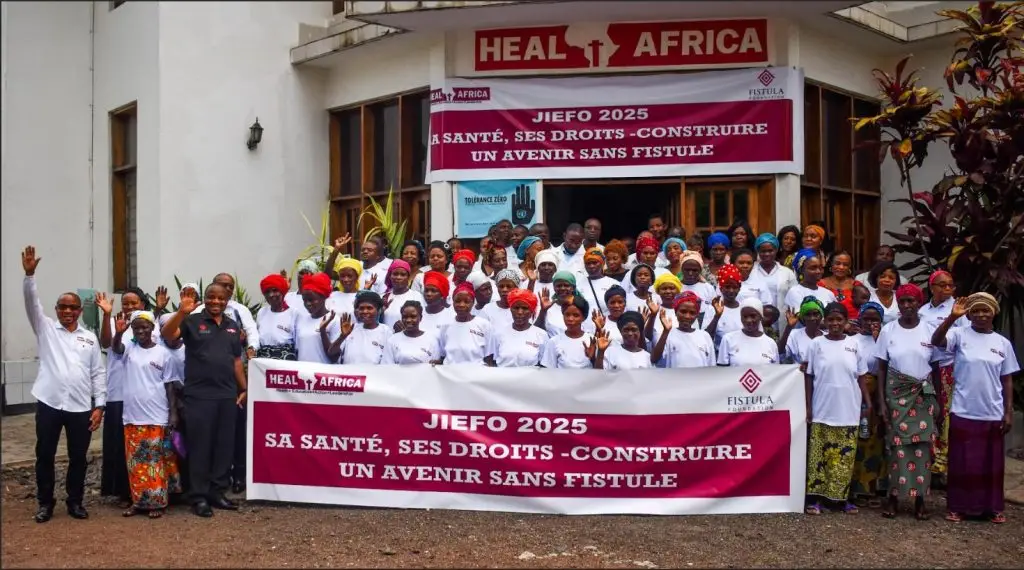HEAL Africa – IDEOF 2025: “Her health, her right – Shaping a future without fistula”

As every year, HEAL Africa Hospital marked the International Day to End Obstetric Fistula (IDEOF) on Friday, May 23, 2025. The event was a moment of joy, solidarity, and renewed hope for the many women affected by this condition.
Presentations focused on sexual and reproductive health were delivered, highlighting the importance of prenatal consultations, family planning, and the most common causes of obstetric complications. Former fistula patients who have fully recovered shared powerful testimonies, providing encouragement and inspiration to women currently undergoing treatment.
The day concluded with an interactive Q&A session on girls’ and women’s health, creating a safe space for listening, learning, and exchanging ideas.
The ceremony brought together HEAL Africa’s medical staff, current and former fistula patients, and various stakeholders from the health sector.
This year’s global theme, “Her health, her right – Shaping a future without fistula,” is a strong call to uphold every girl’s and woman’s fundamental right to quality sexual and reproductive healthcare.
Obstetric Fistula: A Tragedy Worsened by War
Each year, HEAL Africa provides free treatment to hundreds of women suffering from obstetric fistula. Care is offered both at the hospital in Goma and in remote areas of the DRC through outreach surgical repair campaigns.
However, ongoing insecurity in eastern DRC, particularly around Goma, is seriously hampering these operations. The closure of Goma International Airport has made it increasingly difficult to deploy medical teams and transport essential equipment and supplies to affected regions.
In this conflict-ridden environment, pregnant women face severe barriers to accessing essential care: impassable roads, closed or destroyed health facilities, and critical shortages of medical personnel. These conditions dramatically increase the risk of pregnancy-related complications and prevent women with fistulas from receiving timely treatment.
Displaced women, often forced to give birth in unsafe conditions, are especially vulnerable. The war continues to exacerbate the prevalence of fistulas and slow down response efforts.
A Decade of Commitment
This year marks the 13th commemoration of the International Day to End Obstetric Fistula since its official launch at HEAL Africa on May 23, 2013, by Mr. Ban Ki-Moon, then General Secretary of the United Nations. Since then, HEAL Africa has remained steadfast in its mission to help build a future free from fistula, despite the challenges posed by the ongoing conflict.
